V.O. Chidambaram Pillai, freedom fighter from Tamil Nadu, has been celebrated as the man who took on the mercantile might of the British in the early 20th century by starting a shipping company under colonial rule. How did he pull off this audacious act?
In his new book, Swadeshi Steam, historian A.R. Venkatachalapathy gives a detailed account of how VOC (as he was known) did it and what happened subsequently.

Excerpts from an interview with A.R. Venkatachalapathy, who will be talking about his book at The Hindu Lit Fest 2024, on January 26-27, in Chennai.
V.O. Chidambaram Pillai (VOC) was not a businessman. How did he take the audacious decision to launch an indigenous shipping company?
VOC was not a man who blew his own trumpet. In whatever little he spoke or wrote about the great Swadeshi Steam Navigation Company that he launched in 1906 he underplays his role. But his political interests date back to 1893 when he came under the influence of Bal Gangadhar Tilak. Clearly the nationalist fervour that was triggered by the Swadeshi movement following the partition of Bengal powered his venture. Indigenous enterprise and boycott of British manufactures were constitutive elements of the movement. Many were involved in simple manufactures such as making soap, buttons, bangles and needles.
VOC dreamed big. More than a century later, it remains difficult to trace the roots of this dream.

Coming from the deep South how was VOC influenced by the Swadeshi movement?
I have already referred to his early exposure to Tilak. In 1900, VOC moved to the port town of Tuticorin and was active in public life. He keenly followed the press and was well aware of contemporary political developments. In his verse autobiography he mentions meeting a Swami Ramakrishnananda who he says sowed the seeds of Swadeshi in his heart. Under VOC’s leadership Tuticorin became the hub of the Swadeshi movement in South India. Tirunelveli and Tuticorin drew all-India attention and VOC became a national hero.
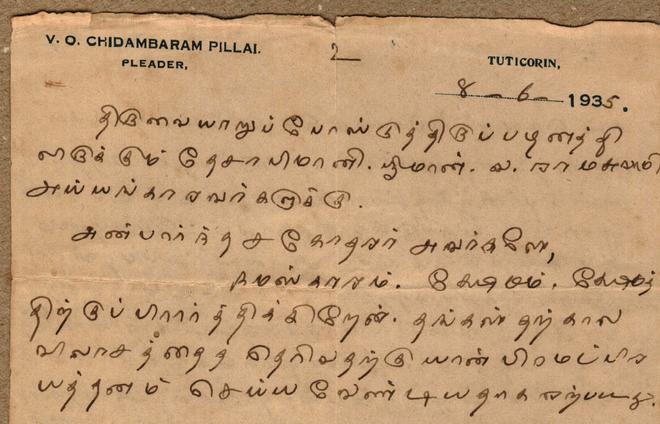
You have said local merchants and traders had to suffer because of the highhanded treatment from the British shipping industry. How badly were they affected?
As a colony, Indian economic interests were always subservient to the British. There is a long history of Indian enterprise being crushed by the empire. Nearer VOC’s own town, in the Zamindari of Ettayapuram, his close friend, the great poet Subramania Bharati’s father’s cotton ginning company was ruined by European machinations. In the early 20th century, Tuticorin was the fifth largest port in India. The British Indian Steam Navigation Company held a virtual monopoly over freight and passenger traffic. In association with the South Indian Railway Company — again British-owned — it had ruined all the small ports across the Coromandel coast bringing misery to local traders. The crushing of trade interests was laced with everyday racism. The Swadeshi movement was the catalyst that led to the shipping company experiment. VOC gave the leadership and married it to ideas of economic nationalism which was an integral part of the movement.
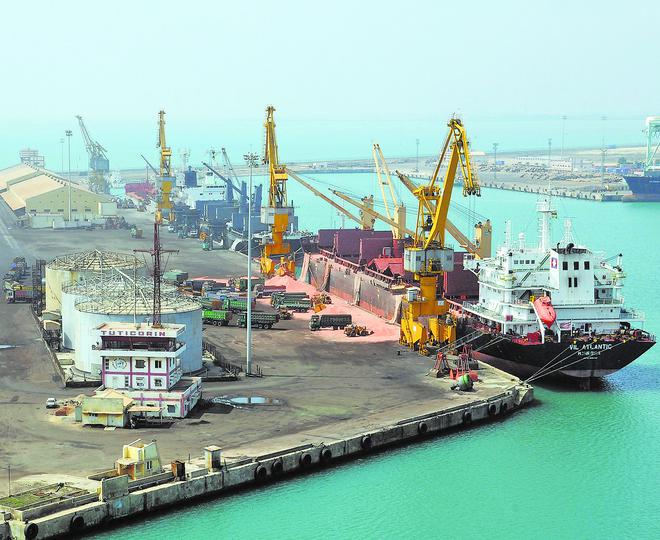
The Swadeshi Steam Navigation Company took British interests head on. On hindsight was this a foolhardy thing to do?
VOC dreamed big. For him it was not a business enterprise but a front for the anti-colonial struggle. In a poor country with no capitalist class to speak of, he raised over ₹6 lakh as capital — that too in barely a year. He purchased two steamers from Europe. Rather than embark on this venture, should VOC have continued his flourishing legal practice? Should he have underplayed his nationalist politics? Should he have compromised with the European merchants? Should he have taken up the district collector L.M. Wynch’s offer and left Tuticorin escaping a draconian prison sentence? Yes, but then he would have not been VOC. There would have been no heroic tale to narrate. Madras Presidency would not have shed its infamous image of being ‘a benighted province’ and ‘a sleepy hollow’. The region would not have produced leaders and intellectuals — Subramania Bharati, Subramania Siva, Ethiraj Surendranath Arya, V. Chakkarai Chettiar — who contributed to the social transformation of the region.
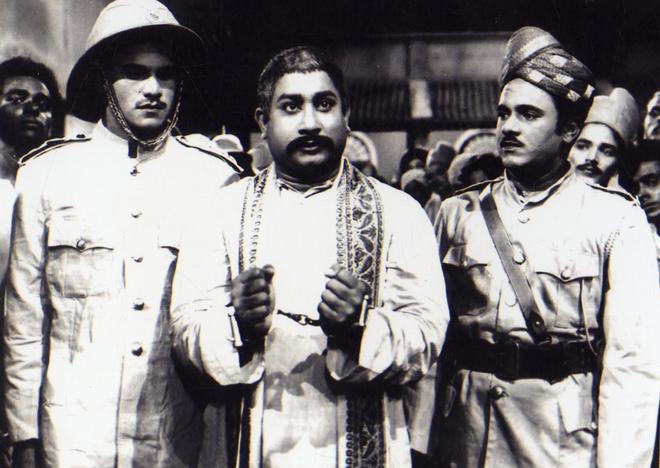
Why was starting this company seen as sedition? Why did the British feel so threatened?
It was the congruence of politics and economics that so threatened the empire that no less than the governor of a vast and sprawling presidency targeted VOC. More than a decade after VOC, Gujarati merchants started the Scindia Steam Navigation Company purely as a business enterprise. Despite the nationalist movement having become much stronger, it was not easy sailing for the Scindias. But in Tuticorin, VOC used an economic venture for political mobilisation with a strong anti-colonial message. For the first time, the masses joined the movement. As the judge who sentenced VOC to a double life imprisonment pointed out, he had no business to talk, in their own language, to the common people, who had no political rights. It would have been surprising if VOC was to go scot-free.
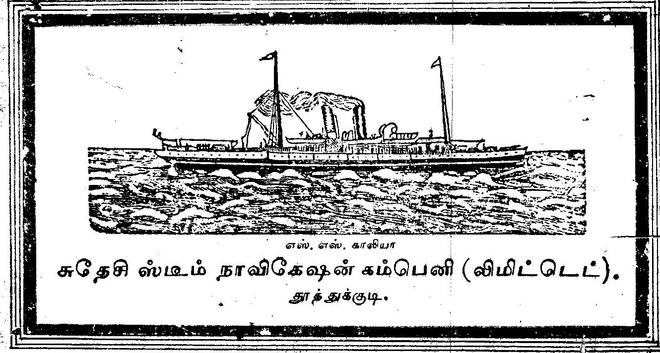
How did you come to write this book? What were the challenges?
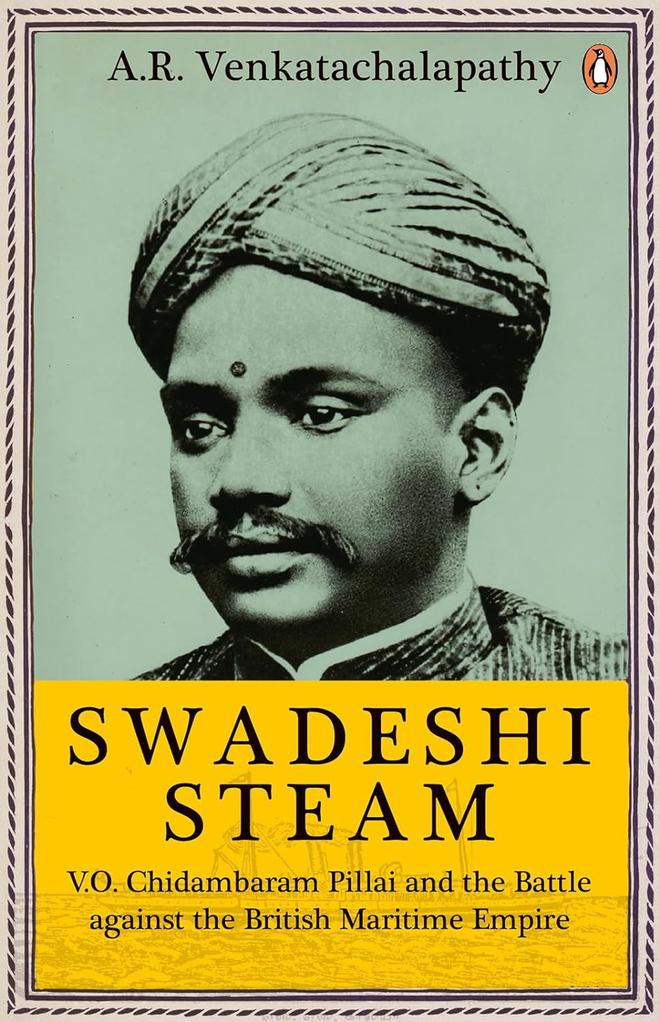
VOC was my boyhood hero. The absence of a good biography led me to start this research in 1981. It has taken me over 40 years to research his life. It has shaped my vocation as a historian, my life as a social being and my conscience as an individual. Most of the records have been lost. Following the assassination of Robert Ashe who played a big role in crushing the shipping company actors in the Swadeshi movement officials possibly destroyed incriminating papers in their possession. I had to search archives across the world. Piecing together tantalising bits of information from government records, secret police reports, press reports, correspondence and memoirs has been challenging. I believe this is the first time an Indian historian has used the records of shipping classification societies. In narrating this story, I have often wondered if this incredible story of an audacious patriot is indeed true. It is so full of drama. I hope I have done justice to this great adventure.
Swadeshi Steam; A.R. Venkatachalapathy, Allen Lane, ₹999.
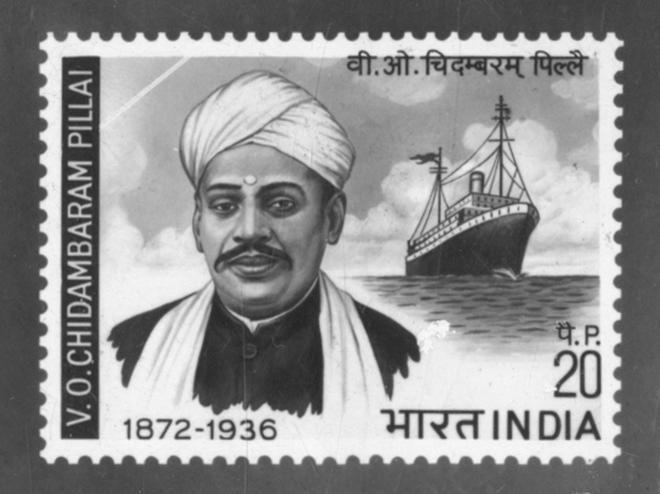
The interviewer is a Chennai-based journalist and writer.







